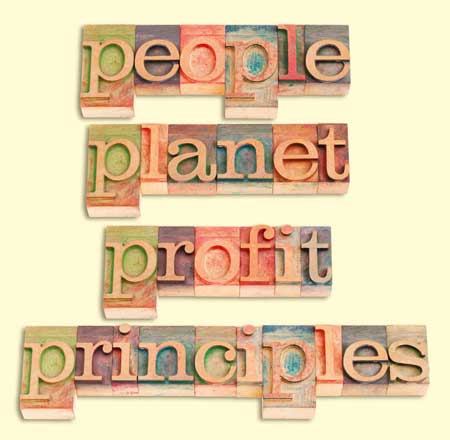SOCIAL SUSTAINABILITY
Sustaining Wellbeing
Social sustainability refers to people’s wellbeing and should therefore, assure the availability of resources that people need. The fulfilment of a person’s basic needs (shelter, food, health and security) is a critical concern of social sustainability. But the assurance of providing such needs today cannot compromise the ability to fulfil the same in the future.

Dr. Madurika Nanayakkara, Senior Lecturer –University of Kelaniya explains: “In Sri Lanka, there are various initiatives to ensure social wellbeing. However, their contribution towards social sustainability is questionable. For example, Samurdhi provides financial assistance to needy people every month but what is the return for the economy? Will such subsidies contribute to reducing poverty? The answer is ‘No’.”
Providing one-way grants is not a good initiative in terms of social sustainability but schemes such as Grameen projects should be introduced instead of subsiding people. Nanayakkara lauds initiatives such as Suva Sariya, Mahapola, and Nanasala, which “contribute to enhancing social sustainability by ensuring people’s health and education needs” in her view.
She cites 2020 UN statistics, which show that the US$ 3.2 per day poverty rate of Sri Lanka increased from 9.2 percent of the population in 2019 to 11.7 percent in 2020 for various reasons such as the Easter attacks, the COVID-19 pandemic and the economic crisis. Therefore, along with cash transfers and debt moratoriums for economically vulnerable people, long-term poverty reduction plans should also be included in national policies.
Moreover, she believes that strengthening the country’s civil law is another essential requirement to assure social sustainability. In addition, health, education and security are critical factors for any country to guarantee social sustainability.

Sharing her ideas to resolve the economic crisis, she says: “We should focus on the immediate actions we can take as a country facing one of its worst ever economic downturns. I’d recommend identifying underutilised resources and reducing over consumption. The two major problems we’re facing, the economic and climate crises, can be addressed sustainably through the efficient use of natural resources.”
The senior lecturer continues, “For example, we can promote ecotourism, which guarantees foreign currency income and sustainable economic development. In contrast, we should identify the overconsumption of resources by businesses and the general public and reduce such by more efficient utilisation.”
Micro farming and home gardening could also provide relief. “People who do not have farmland can start home gardening for vegetables and fruits. This initiative will ensure food availability in the country, low carbon emissions and economic growth,” she urges.
Nanayakkara also recommends the expansion of renewable energy sources, especially solar energy. “The government can promote solar energy usage among low and middle income households, and at government institutions, leading to a decrease in energy generation through fossil fuels and find relief for the power crisis in the country,” she muses.
Guaranteeing the wellbeing of people today and tomorrow is the key concern of sustainability. Therefore, it is essential to avoid using nonrenewable energy sources and carbon emission actions to the maximum.
“Private and public organisations should always pay attention to the efficiency of resource utilisation in their products and services throughout the supply chain. Also, organisations should consider ensuring the health and job security of employees, providing safe products to customers at reasonable prices and avoiding any harmful impact to the environment from their business activities,” Nanayakkara contends.
Concluding her thoughts she said: “They should pioneer new processes to reduce wastage in the production process and time wastage of customers to contribute to social and economic sustainability. Therefore, research and development, and product and process innovations are essential to the public and private sectors.”
“The two major problems we’re facing, the economic and climate crises, can be addressed sustainably through the efficient use of natural resources”





